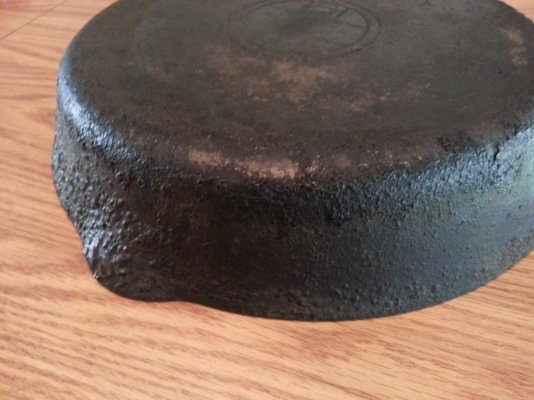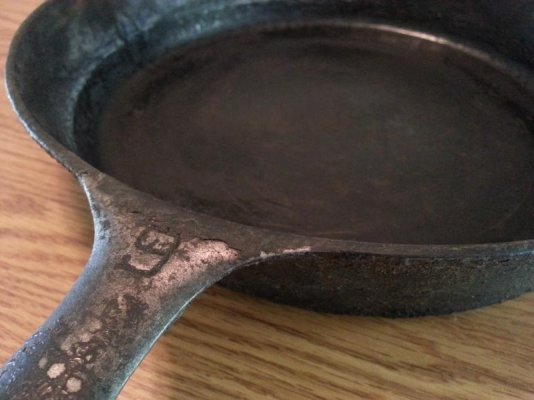Steel is more ductile than is cast iron, that is, it will bend, stretch, and has a certain amount of elasticity. The reason cast iron will crack/shatter, is that it doesn't have that same property. It is more like stone, or glass. Thermal shock can crack cast iron in the same way it shatters glass. As materials are heated and cooled, they expand or contract. With a material like aluminum or copper, this isn't a problem, as they are great conductors of heat, and tend to change size at an even amount, all over. But ferrous substances, i.e. cast iron/steel, area poor conductors of heat. Therefore, the outside starts expanding/contacting before the middle can do the same. The change size at a different rate. The outside surface is changing very quickly, while the middle is resisting that change. And as cast iron has almost no ability to stretch, the forces become strong enough to shatter the metal, similar to pressure cracks on large, frozen bodies of water.
Steel, on the other hand, responds to the same treatment by warping. The metal doesn't fail catastrophically.
Also, that lack of ductile strength is the reason you can shatter cast iron with blunt force. People who work metal with chisels know that striking metal against metal can cause bits to break and fly away from the tools at high speed. This is why eye protection is a must for metal workers.
So, don't immerse very hot cast iron, or steel pots and pans in ice cold water. Don't hit them with a hammer, and if you have a very hard headed partner, don't whack him/her with a pan. You might crack the metal.

Seeeeeeya; Chief Longwind of the North
 It still works for barbecue and oven grates though.
It still works for barbecue and oven grates though. 




